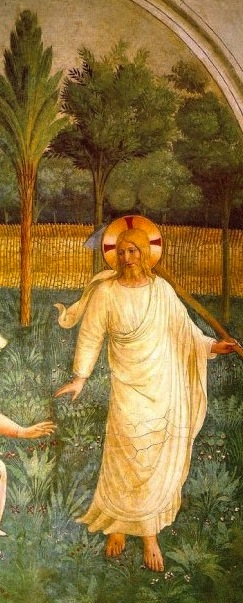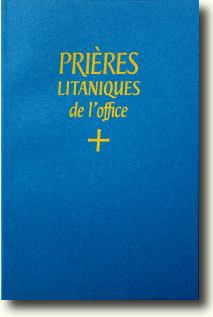To thee do I watch at break of day (XII)

CHAPTER XII. How the Solemn Office of Lauds is to be said
14 Feb. 15 June. 15 Oct.
At Lauds on Sunday let the sixty-sixth Psalm first be said straight on without an antiphon. After this let the fiftieth Psalm be said, with an Alleluia, and then the hundred and seventeenth and the sixty-second. Then the Benedicite and Psalms of praise, a lesson from the Apocalypse, said by heart, a responsory, a hymn, a versicle, a canticle out of the Gospel, and the Litany, and so end.
The Office of divine praise at daybreak represents an element of the Catholic liturgy that is, at once, most traditional and universal. More recent use calls this Office Lauds. Saint Benedict, however, distinguishes three parts of the morning psalmody: (1) the psalmus confessionis; (2) the matutinal psalms; and (3) the true Lauds, Psalms 148–149–150.
First, on Sunday and also on every other day of the week, comes the psalmus confessionis, the daily prayer of sorrow for sin and resurrection to newness of life that is Psalm 50, the Miserere. John Mason Neale calls it “the Psalm of all Psalms; that which of all inspired compositions has, with the one exception of the Lord’s Prayer, been repeated oftenest by the Church”. Fittingly, the Fathers see in the fiftieth psalm the mystery of the jubilee, that is, the forgiveness of debts and a great outpouring of divine mercy. The psalm contains five movements. These constitute an ascent to the altar, to the throne of grace:
Let us go therefore with confidence to the throne of grace: that we may obtain mercy, and find grace in seasonable aid. (Hebrews 4:16)
The first movement is a prayer of most perfect humility (1–6).
Have mercy on me, O God, as thou art ever rich in mercy;
in the abundance of thy compassion, blot out the record of my misdeeds.
Wash me clean, cleaner yet, from my guilt, purge me of my sin,
the guilt which I freely acknowledge, the sin which is never lost to my sight.
Thee only my sins have offended;
it is thy will I have disobeyed; thy sentence was deserved,
and still when thou givest award thou hast right on thy side.
The second, expresses confidence in the mercy of God (7–12).
For indeed, I was born in sin;
guilt was with me already when my mother conceived me.
But thou art a lover of faithfulness,
and now, deep in my heart, thy wisdom has instructed me.
Sprinkle me with a wand of hyssop, and I shall be clean;
washed, I shall be whiter than snow;
tidings send me of good news and rejoicing,
and the body that lies in the dust shall thrill with pride.
The third asks the Lord to turn away His Face from David’s sin (9–12).
Turn thy eyes away from my sins,
blot out the record of my guilt;
my God, bring a clean heart to birth within me;
breathe new life, true life, into my being.
The fourth argues that other sinners will be encouraged by the pardon granted to David (13–17).
Do not banish me from thy presence, do not take thy holy spirit away from me;
give me back the comfort of thy saving power, and strengthen me in generous resolve.
So will I teach the wicked to follow thy paths; sinners shall come back to thy obedience.
My God, my divine Deliverer, save me from the guilt of bloodshed!
This tongue shall boast of thy mercies;
O Lord, thou wilt open my lips, and my mouth shall tell of thy praise.
The fifth points to the mystery of the new Sion, the Church and to the unbloody Sacrifice of the Cross solemnly renewed upon her altars (18–19).
Thou hast no mind for sacrifice, burnt-offerings,
if I brought them, thou wouldst refuse;
here, O God, is my sacrifice, a broken spirit;
a heart that is humbled and contrite thou, O God, wilt never disdain.
Lord, in thy great love send prosperity to Sion, so that the walls of Jerusalem may rise again.
Then indeed thou wilt take pleasure in solemn sacrifice, in gift and burnt-offering;
then indeed bullocks will be laid upon thy altar.
Then, on Sunday, follow two matutinal psalms, chosen for their suitability at daybreak and for their allusions to the infusion of prevenient grace into the praying soul as she makes her way to the altar. The first of these, Psalm 117 is the Paschal psalm par excellence. This is the psalm that Our Lord quotes in reference to Himself:
Jesus saith to them: Have you never read in the Scriptures: The stone which the builders rejected, the same is become the head of the corner? By the Lord this has been done; and it is wonderful in our eyes. (Matthew 21:42)
It is moreover the psalm that the Church repeats over and over again, in a kind of ecstasy of jubilation in the Divine Office and in the Masses of Holy Pascha and of the whole hebdomada alba or Bright Week. It must be noted that all three Sunday psalms (50, 117, 62) point in succession to the altar or to the sanctuary, giving them a Eucharistic finality that make them eminently well–suited to the Day of the Lord.
Then shalt thou accept the sacrifice of justice, oblations and whole burnt offerings: then shall they lay calves upon thy altar. (Psalm 50:21)
The Lord is God, and he hath shone upon us. Appoint a solemn day, with shady boughs, even to the horn of the altar. (Psalm 117:27)
So in the holy place, I contemplate thee, ready for the revelation of thy greatness, thy glory. (Psalm 62:3)
The second matutinal psalm on Sunday, Psalm 62, is, I think, the most mystical and contemplative of the whole Psalter. It is the third of the three psalms of the altar, and a perfect act of preparation for Holy Communion:
O God, my God, to thee do I watch at break of day. For thee my soul hath thirsted; for thee my flesh, O how many ways! In a desert land, and where there is no way, and no water: so in the sanctuary have I come before thee, to see thy power and thy glory (Psalm 62:2–3)
The Benedicite, that is the Canticle of the Three Young Men in the Fiery Furnace (Daniel 3, 57-88; 56), follows. The festive use of this canticle is also very nearly universal. The Benedicite summons the entire cosmos into the praise of God that attains its summit in the Holy Sacrifice of the Mass. With its appeal to angels in heaven (v. 58 ) and to priests ministering in the temple (v. 84), it unites the liturgy of heaven with that of the Church on earth, evoking the Preface and the Sanctus of the Mass:
It is truly meet and just, and profitable unto salvation, that we should at all times, and in all places, give thanks to thee, O Holy Lord, Father Almighty, eternal God, through Christ, our Lord. Though whom the angels praise thy majesty, the dominions adore it, the powers are in awe. Which the heavens and the hosts of heaven together with the blessed seraphim joyfully do magnify. And do thou command that it be permitted to us join with them in confessing thee, while we say with lowly praise:Holy, Holy, Holy, Lord God of Sabaoth! Heaven and earth are full of Thy glory!
In the light of this, it is becomes clear why the Church prescribes the same canticle to priests as their official liturgical thanksgiving after every Holy Mass. Blessed Dom Columba Marmion never omitted the Benedicite with the customary versicles and orations after Holy Mass. The holy Irish Benedictine felt it singularly appropriate to summon all creatures to the praise of the Word indwelling him sacramentally after Holy Communion.
Finally, the true Lauds are sung: Psalms 148, 149, 150. The tradition of the Laudate psalms at daybreak is a primitive and universal element of Christian worship. In the various liturgies of East and West, these psalms are never omitted, not even in the Office of the Dead, nor on Great and Holy Friday. This practice prevailed even in the Roman Breviary until the reform of Pope Pius X in 1911. Saint Benedict, following the Roman tradition, treats the last three psalms of the Psalter as if they were a single symphony of undiluted praise sung under one Gloria Patri, not only on Sunday, but every day. Over and again, we chant laudate, calling upon God’s good creation to enter into its doxological finality. Dom Gabriel Sortais (1902-1963), Abbot General of the Trappist Order, was, on one occasion, so enthused by the bright succession of the Laudate psalms that he commented afterwards, “Today, I danced my way through Lauds”.
 After the psalmody, the Office moves quickly to its luminous conclusion: a brief “lesson from the Apocalypse, said by heart”, a responsory, the lilting rhythm of the Ambrosian hymn and, finally, Zacharias’ priestly praise of “the Orient that hath visited us from on high, to enlighten them that sit in darkness, and in the shadow of death, and to direct our feet into the way of peace” (Luke 1:78–79).
After the psalmody, the Office moves quickly to its luminous conclusion: a brief “lesson from the Apocalypse, said by heart”, a responsory, the lilting rhythm of the Ambrosian hymn and, finally, Zacharias’ priestly praise of “the Orient that hath visited us from on high, to enlighten them that sit in darkness, and in the shadow of death, and to direct our feet into the way of peace” (Luke 1:78–79).
Saint Benedict speaks of one final element, the litany. Litanic prayer belongs to the most ancient traditions of popular worship. In Rome, for example, the Litany of the Saints was sung on every Ember Saturday, following the long vigil of lessons and chants, as a preparation for the Pope’s ordination of priests and deacons. The litany at Lauds and Vespers has long been reduced to the threefold cry of supplication addressed to “the Lord Christ, our true king” (Prologue): Kyrie eleison, Christe eleison, Kyrie eleison. The learned Fathers of Solesmes have, nonetheless, edited a fine collection of ancient litanies suitable for the Divine Office. These may, in fact, be sung at certain seasons or on a certain days.
